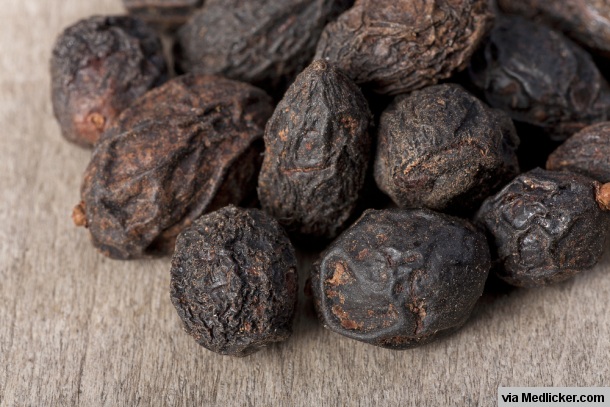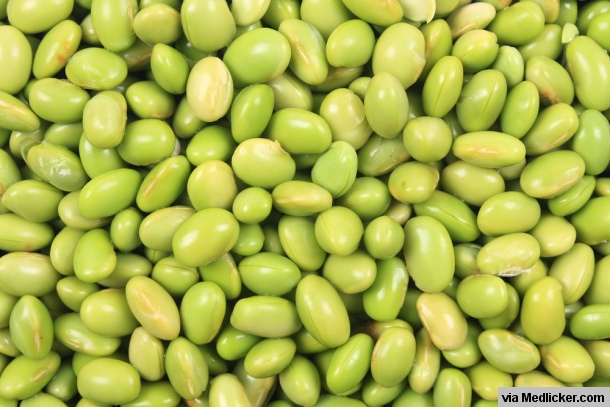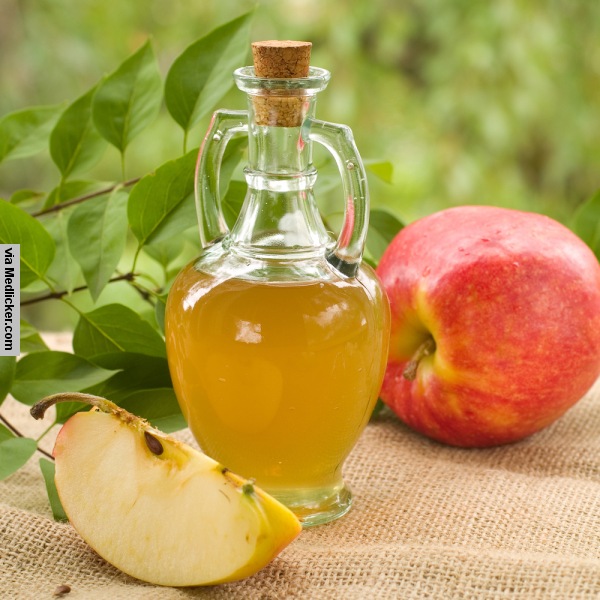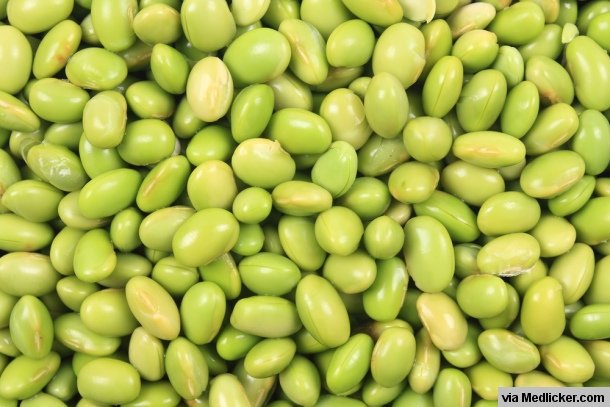Natural Remedies For Polycystic Ovarian Syndrome (PCOS)
This article provides an overview of natural remedies for polycystic ovarian syndrome. First we discuss the disorder itself and then various medicament free treatments for PCOS are described.
What is Polycystic Ovarian Syndrome?
Before discussing what polycystic ovarian syndrome is and how natural treatments options can help in easing the symptoms, let us take a brief look at how ovaries function normally. Ovaries are small structures present in the pelvis. Their function is to release eggs in regular intervals - ovulation stage of regular menstrual cycle. But the function of ovaries doesn’t end here. Ovaries are also responsible for the production of a number of female sex hormones - estrogens for instance.
You might think that testosterone is exclusively a male sex hormone and it is totally absent in females but this is not true. Ovaries also produce a small amount of testosterone in females but this amount is not enough to produce significant effects on females. Now that you know the basic function of ovaries, knowing about polycystic ovarian disease would be very simple. Polycystic ovarian syndrome is also known as polycystic ovarian disease, PCOS or hyperandrogenic anovulation. PCOS is a condition in which ovaries end up producing a large amount of male androgens, testosterone in particular, and other sex hormones.
How this disease develops has been thoroughly studied and researchers believe that two factors are particularly very important in the development of this disease:
- Leutinizing hormone (LH) is a stimulant hormone for ovaries. So one reason for the development of PCOS can be the excessive production of this hormone.
- Another reason can be the excessive production and stimulation of ovaries by insulin.
But why certain females develop PCOS and others don’t? This question is quite valid and researchers have not found the complete answer till now. But there are some speculations why some females are more prone to develop this condition.
Such conditions include:
- One of the main reasons of this condition is hereditary predisposition to develop this disease. This disease seems to run in families in an autosomal dominant manner.
- Obese females are more prone to develop this condition as compared to the others.
What are the symptoms of Polycystic Ovarian Syndrome?
After knowing the causes of PCOS, you should also know the basic symptoms of PCOS. Following are the major symptoms of PCOS:
- A proper balance of ovarian hormones is essential to carry out a proper menstrual cycle but the hormonal imbalance, as seen in PCOS, leads to improper menstrual cycle. This manifests as oligomenorrhea (few menstrual cycles) or amenorrhea (no menstrual cycles).
- No or little menstrual cycles would mean that female is not producing eggs. This condition is called anovulation. When eggs are not produced, the female can’t conceive and it results in infertility.
- As mentioned before, PCOS is a condition in which there is an excess of male hormones. Therefore females start to develop male like features due to the excess of these hormones. Such features include excess of hair on face and other body parts (hirsutism), baldness (alopecia) etc.
- Another symptom very frequently found in females with PCOS is obesity and metabolic disorders. Sufferers of PCOS also suffer from diabetes.
Natural Treatments for Polycystic Ovarian Syndrome
Till yet medical science has not invented a complete cure for polycystic ovarian disorder, however there are many PCOS natural herbal treatment options that can hold the manifestations under control and encourage conception. These herbal remedies lift up the functions of hormone and restore healthy hormone adjustment that has been disturbed by PCOS.
Moreover, these methods are natural and have got only limited side effects unlike synthetic drugs that sometime put you into an abyss of side effects and do more harm than good. If you are experiencing polycystic ovarian disorder, you may wish to consider these natural PCOS herbal medicines first.
Here we’ve arranged a compilation of all the natural approaches for treating polycystic ovarian syndrome.
Dietary Changes for PCOS
First and foremost thing that you can try to cure your condition is to shed off some extra pounds. This natural approach for treating polycystic ovarian syndrome usually functions when you’re overweight. First thing that you need to do is by cutting short some extra calories from your daily diet. You need to design a diet in which the sum of calories is not more than 1200-1600 calories per day. This can happen in two ways: one you can eat less and second you can burn off extra calories by doing adequate exercise. So here are some dietary tips for you to cut short calories from your diet:
- Choose the right type carbs! Sometimes the only reason for PCOS is high level of insulin. This insulin is produced in response to increased level of carbohydrates in the blood but this insulin is no good since the person lacks the required receptors for the proper functioning of this hormone. One thing that can spike the level of insulin hormone in your blood is increase in the level of blood glucose. That’s because the basic function of insulin is to decrease the abnormal levels of glucose in the blood. The level of glucose in your blood, in turn, would depend on the type of food you eat. The more simple carbs you eat, more the situation worsens for you. It’s because simple carbs are easily absorbed from the gut and cause the spike of level of insulin. What you need to eat is complex carbs. Complex carbs, as their name shows, have a complex structure and are not easily digested. So eating these kinds of carbs will cause a slow increase in the level of blood glucose and subsequent increase in the level of insulin. So replace white sugar with brown sugar. Replace colas with fruit and plant juices and make vegetables and fruits a basic part of your diet.
- Eat Less Carbs: Carbs are carbs, no matter if they’re healthy or not. Even healthy carbs can prove to be havoc for your life when taken in excess. Try to design a balanced meal where you get enough carbs, proteins and fats.
- Eat More proteins: The best friend for your health, when you’ve got diabetes and you’re overweight, is abundant proteins. But not all types of proteins sources are good. Beef and mutton are the best protein sources but they are also very rich in unhealthy cholesterol and fats. Try some alternative protein sources like white meat (chicken, turkey), seafood, and beans.
- Say No to Fat: Make sure not to eat saturated fats and cholesterols. Try to replace them with unsaturated fats.
Natural Remedies for Polycystic Ovarian Syndrome (PCOS)
If you are experiencing polycystic ovarian disorder, you may wish to consider these natural PCOS herbal medicines first. Below is the list of most effective and powerful herbs/plants utilized in order to remove the side effects of this physical condition.
Saw Palmetto
It is useful to decrease and keep balance of excess testosterone in our body. The extract of saw palmetto produced by using this plant has been effectively utilized in decreasing testosterone levels in the body of female. Saw palmetto accomplishes this by inhibiting the activity of 5- alpha reductase.

This enzyme is responsible for the conversion of testosterone into dihydrotestosterone (DHT). DHT is 100 times more potent than testosterone and by inhibiting this conversion, saw palmetto makes sure that the side effects of overproduction of testosterone are also nullified. Furthermore, it also restores the ordinary balance of estrogen–testosterone in the blood, helps in weight reduction and builds up libido. Taking as much as 320 mg of saw palmetto extract or 1 teaspoon of saw palmetto extract once a day can do the trick for you.
Maitake Mushroom
PCOS is also connected with resistance of insulin. The concentrates of this mushroom are known to have the capability to diminish this insulin resistance, serving to keep up blood sugar at a sound level and having other gainful impacts, such as restoring the healthy metabolism and maintaining healthy body weight.
White Peony
White Peony is an excellent hormonal regulator. Results of several studies have shown that it improves lower progesterone levels, diminishes elevated androgens (testosterone) and controls the level of prolactin and estrogen. Ladies experiencing PCOS normally have low progesterone levels, an issue effectively remedied if the patient expends peony tea every day.

Extra benefits of this supplement incorporate the regulation of estrogen and prolactin emission, which is also important for conception. The best way to use this plant is by making a tea from its powder. Regular consumption of this tea can be really beneficial in ameliorating the symptoms of PCOS.
Dandelion Root
This plant root is most commonly known as the most effective tonic for the liver. But dandelion root concentrate also has got an immense potential to decreases PCOS symptoms by helping the body nullify the extra amount of hormones collected in the liver. It also expels the toxin from the body, thus helping women experiencing fertility problems and menstrual issues.
Cinnamon
The results of a research conducted in the Columbia University showed that use of cinnamon can help improve menstrual abnormalities. Generally utilized as a spice in many food items, cinnamon has various useful impacts on the body. The expansion of insulin affectability is the quality that makes it valuable in the treatment of PCOS. It also facilitates in weight loss and helps to control glucose levels.
Following are some important ways in which cinnamon can be used:
- The simplest way to use cinnamon is by adding a teaspoon of cinnamon powder in a glass of water. Drink this solution once a day for a month or you can drink it for as long as you’re not satisfied with the results.
- Cinnamon capsules are available in the market. Eating a 1000 mg capsule three times a day is the recommended dosage for PCOS.
- You can simply use it as a spice in your curries, salads, soups, meals and salads.
Soy Isoflavones
Women with PCOS regularly suffer from infertility because of anovulation. Soy isoflavones have same impacts like Clomid, a prescribed medication broadly utilized for treating ovulation disorder effectively.

If you are experiencing PCOS-related infertility, you can go for some of these common cures. PCOS herbal treatment alternatives might be incredible substitutes to prescription medication, on the other hand, always counsel your specialist doctor before taking any of them, to verify you are not allergic to them or experience any condition they may irritate them.
Chastberry
Normalizes and stimulates the pituitary gland for discharge of Lutinizing hormone; empowers progesterone discharge which stretches menstruation; upgrades fertility by lessening androgen/ estrogen ratio, which is responsible of anovulation (no ovulation) when in excess.
Following are some ways to use this herbal cure:
- This natural cure for PCOS is commonly used in the form of herbal tea. To make this tea you would be needing fresh or dried chastberries, a glass of water and few teaspoons of honey. First take the water in a kettle and add to this one teaspoon of fresh or dried chastberries. Boil this water for 10 minutes. After that take it off from the heat and let it cool down for a few minutes. Strain this solution into a cup and add honey into this solution to add to its taste. You can use this tea for one month or for as long as you’re not satisfied with the results.
- If making a tea is too much work for you then you can eat the supplements or tablets forms of this natural remedy. But you must consult your doctor or health care provider before using this herbal remedy for polycystic ovarian syndrome.
Gymnema Sylvestre
Gymnema Stylvestra is considered as most effective herb for PCOS and is being utilized for decades as anti-diabetic, anti-sweetener and could be one of the great natural solutions for PCOS. Leaves of this plant are known to have the medicinal properties and the bio-dynamic constituents in these leaves are known as Gymnemic acids. They go about as hypoglycemic operators and help lighten up your lipid profile. PCOS presents itself with an exhaustive etiology and insulin is blamed to be the basic cause.
It further triggers the levels of androgens (male sex hormones) and agitates the ordinary levels and working of female sex hormones making an aggregate mess. Amenorrhea, gain in weight, anovulation, cholesterol, large amounts of triglycerides, hirsutism, pimpleand inflamation are regular in such females. For such women, Gymnema could be the useful support to abate all the aforementioned symptoms.
Licorice
In a recent study conducted on young it was found that women who were dosed everyday with 0.25 grams total glycyrrhizic acid from licorice root, the mean aggregate serum testosterone fundamentally diminished right after one or two months of treatment. Prior studies of licorice root extract proved that licorice may lessen testosterone emission in women with polycystic ovary disorder as well as women with abundance androgen hormone effecting their menstrual cycles and causing infertility.
So here are some ways you can use this herbal treatment on daily basis:
- To make a licorice tea, take a cup of water and put it in a kettle. Add 1 teaspoon of licorice root powder into this water and heat it till boils. Take this water off the heat and strain it. You can add honey into this tea to make it taste good. You can drink this tea 2-3 times a day for a month or so.
- Alternatively you can use licorice in the form of supplements.
Licorice tincture is easily available in the market. Eat quarter or one half of the teaspoon of this tincture on daily basis.
Spearmint tea
Only 2 glasses every day have a positive impact on the hormones included in PCOS. A 2009 study by the Department of Diabetes and Endocrinology, Eastbourne District General Hospital, England caught up a past Turkish study that proposed drinking spearmint tea decreased excess hair development (a part of hirsuitism) in ladies with PCOS. However, it was showed and affirmed that spearmint did altogether decrease blood levels of testosterone and also made a more appropriate ratio between follicle animating hormone and lutenizing hormone; both exceptionally positive signs show that this good tasting herb is an imperative ally for you. The recipe for making this tea is same as for the teas mentioned in the text above. The spearmint quantity mostly used is 1 teaspoon. You can use this tea for 1 month at least or more.
Flaxseeds
Flaxseeds have been scientifically proven to decrease the level of androgens. It accomplishes this by increasing the production of several binding proteins that bind with the increased serum level of androgens and thus cause a decline in their serum level.
Following are some ways you can use flaxseeds:
- You can add 1-2 teaspoons of flaxseeds in a glass of water. You can use this drink on daily basis for 1-2 months.
- Flaxseeds are also available in the form of tinctures and capsules. You can use this supplement based on the recommendations of your doctor.
- You can simply add flaxseeds in your curries, salads and soups.
Apple Cider Vinegar
Apple cider vinegar is perhaps the king of natural remedies world. It is also very good for women suffering from PCOS. It accomplishes this feat by decreasing the level of glucose in the body.

This will ultimately decrease the level of insulin- the one major reason why you might be experiencing PCOS in the first place. You can use apple cider vinegar by mixing at least 2 teaspoons of apple cider vinegar in a glass of water. The best time to drink this solution is in the morning before eating anything or before taking meals. If this solution is too difficult for you to drink then you can add it with tasty fruit and vegetable juices.
Fenugreek
Fenugreek functions in the same way as fenugreek. It functions to decrease the level of glucose and insulin. It also functions to improve the metabolism of carbohydrates.
Following are some ways to use fenugreek seeds as a natural treatment option for polycystic ovarian syndrome:
- Take a teaspoon of fenugreek seeds and soak them in water for as much as six to eight hours. All you need to do is to take a teaspoon of these soaked fenugreek seeds early in the morning along with honey on empty stomach. Also repeat same dose 10 minutes before lunch and dinner. Keep eating fenugreek seeds for a month or as long as you don’t improvement.
- Another easy way to use fenugreek seeds is by adding it in your daily diet.
Fish Oil
Fish oil ameliorates both reason of development of PCOS i.e. increase in the level of androgens and increased production of insulin. A study published in the American Journal of Clinical Nutrition has shown that use of fish oil supplements on daily basis can help abate the symptoms of PCOS. The rich content of Omega-3 fatty acids in the fish are considered to be responsible for these anti-PCOS response of fish oil.
Here are some ways you can use fish oil:
- Fish oil is available in the form of capsules or tinctures. You can use these preparations of fish oil on daily basis based on the recommendation of your doctor or health care provider.
Holy Basil
This is another natural remedy for polycystic ovarian syndrome that is most commonly used throughout the world. Holy basil has got excellent anti-androgenic properties. Moreover, it is also important in decreasing weight and boosting the loss of weight. In addition to these benefits, it is also very helpful in decreasing stress and is a potent anti-inflammatory agent.
Following is the way you can use holy basil, also known as tulsi, for the treatment of poly cystic ovarian syndrome:
- You can eat these leaves raw. But make sure that these leaves are fresh. Eat 8-12 fresh leaves of holy basil in the morning before breakfast.
- Another way to consume holy basil is by making a tea from its powder or its fresh leaves. The method for the preparation of this tea is same as the other teas mentioned before. Consult your healthcare provider for proper dosage.
Additional information and help
PCOS Nutrition and PCOS Diet Support - resources on PCOS diet and nutrition.
PCOS Challenge - a network for women with PCOS, click here.
Condition leaflet on Wikipedia.
| Written by: | Michal Vilímovský (EN) |
|---|---|
| Education: | Physician |
| Article resources: | Mayo Clinic | PCOS Foundation | Natural PCOS Treatments |
| Image resources: | Shutterstock.com | Dollarphotoclub.com |
| Published: | August 29, 2014 at 10:37 AM |
| Last updated: | October 26, 2014 at 10:45 AM |
| Next scheduled update: | October 26, 2016 at 10:45 AM |
Get more articles like this in your inbox
Sign up for our daily mail and get the best evidence based health, nutrition and beauty articles on the web.


Ache in left arm that you should not ignore
Alkaline water dangers: why you should not drink it
How to Avoid Sleepiness While Studying?
23 Foods That Increase Leptin Sensitivity
Low dopamine (e.g. dopamine deficiency): causes, symptoms, diagnosis and treatment options
Swollen taste buds: the ultimate guide to causes, symptoms and treatment
Thin endometrial lining: causes, symptoms, diagnosis and treatment
Pimples inside nose: the complete guide
Holes in tonsils: definition, symptoms, treatment and prevention
How to deal with an ingrown hair cyst
Allegra vs. Zyrtec vs. Claritin
Allergy to penicillin and alternative antibiotics
How to get rid of phlegm (excessive mucus) in throat? Detailed guide to medical and home remedies, symptoms and causes
What causes stomach ache after meals?
Liver blood test results explained